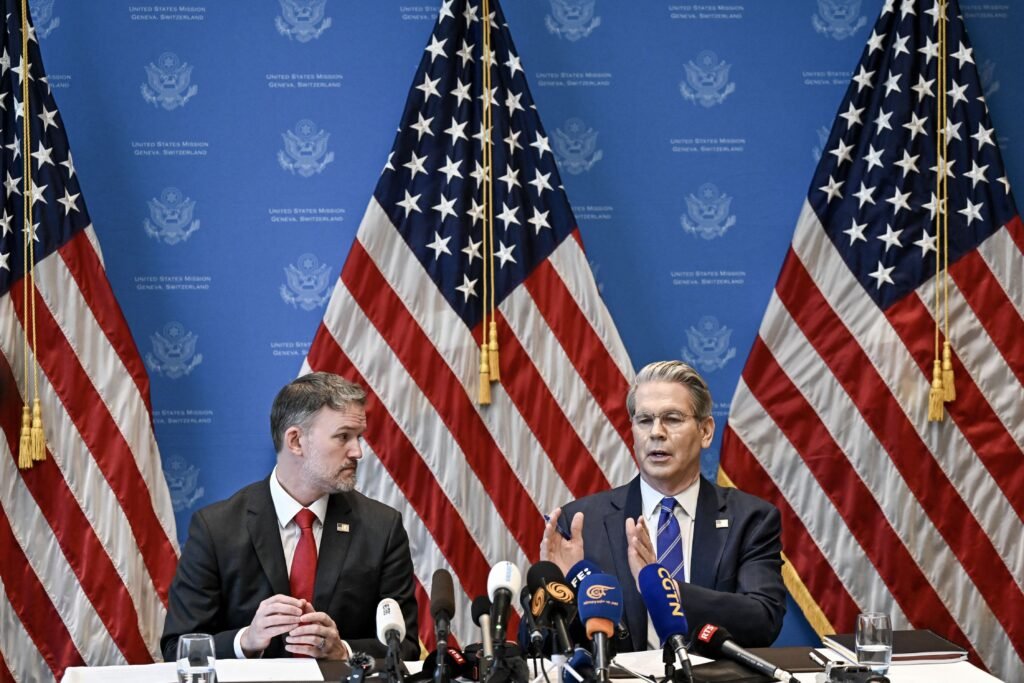The Republican Party’s sweeping domestic policy bill—designed as a hallmark legislative effort to revive key Trump-era priorities—is now facing significant headwinds within Congress and beyond. Touted as a comprehensive revival of conservative economic, social, and immigration reforms, the bill has ignited intense debate not just across the aisle, but also within GOP ranks, casting doubt on its legislative future.
As the Republican leadership, aligned closely with former President Donald Trump, seeks to frame this bill as a blueprint for a potential 2025 Republican administration, the bill’s faltering momentum may expose deeper fractures within the party’s evolving identity and legislative capacity.
Domestic : The Vision Behind the Bill: A Conservative Reset
Marketed by Trump allies as a “return to common-sense America First governance,” the proposed legislation bundles a range of initiatives spanning tax cuts, deregulation, tightened immigration controls, expanded fossil fuel production, and significant reductions in federal oversight across healthcare, education, and climate policy.

At its core, the bill seeks to undo what GOP leaders describe as “excessive liberal overreach” implemented during the Biden administration. Key proposals include:
- Permanent extension of 2017 Trump tax cuts for individuals and corporations
- Rollback of environmental protections to fast-track energy projects
- Stricter border enforcement, including funding for border wall expansion
- Reductions in Department of Education oversight, favoring school choice and state autonomy
- Expansion of domestic oil and gas leasing while sidelining green energy subsidies
According to Republican House Speaker Mark Thomas, “This bill isn’t just legislation. It’s a mission statement—one that puts the American worker, the American family, and American energy first.”


Internal GOP Pushback: Unity Cracks Emerge
While the bill enjoys widespread support among hardline conservatives and Trump loyalists, a growing chorus of moderate Republicans is raising alarm bells. Lawmakers from suburban swing districts have expressed concern that the bill is too extreme in certain areas, particularly immigration enforcement and climate deregulation, which could alienate key voter blocs in the 2024 general elections.
Representative Maria Reynolds (R-PA), a moderate voice within the party, stated, “We risk turning off independent voters by pushing such a comprehensive package without adequate bipartisan dialogue. A piecemeal approach could have more traction.”
Others have flagged the budgetary implications of the proposed tax extensions and cuts to federal social programs, warning that such moves could balloon the national deficit at a time when global economic uncertainty still looms large.
Behind closed doors, several influential GOP senators are reportedly urging leadership to scale back or delay the vote until after the November elections, citing electoral vulnerability and pressure from centrist constituents.
Democratic Opposition and Civil Pushback
As expected, Democratic lawmakers have mounted fierce opposition to the bill. They argue that the proposals reflect outdated, regressive policy positions that will erode social safety nets, harm the environment, and stoke division among communities.
Senate Majority Leader Diane Cortez labeled the bill “a corporate giveaway laced with anti-immigrant, anti-education, and anti-science provisions.”
Outside the halls of Congress, civil society organizations, environmental groups, and labor unions have launched a coordinated campaign to raise public awareness and encourage resistance. Protests have taken place in Washington D.C., Los Angeles, and Chicago, where demonstrators held signs warning of a “return to chaos” and a “war on working families.”
Several policy think tanks, including those typically sympathetic to conservative governance, have expressed doubts about the bill’s economic viability. A joint analysis by the nonpartisan Fiscal Policy Forum estimated that the proposed tax extensions and energy subsidies could add more than $3.5 trillion to the national debt over the next decade without compensatory spending reductions.
Trump’s Hand in the Agenda
Though no longer in office, Donald Trump’s imprint on the bill is unmistakable. The former president has reportedly been in regular communication with House and Senate Republican leaders, providing input and approving major sections of the policy blueprint.
Speaking at a rally in Georgia last week, Trump said, “This bill is what I would sign on Day One if I return to the White House. It fixes what Biden broke and puts America back on the path to greatness.”
The statement energized Trump’s base but did little to soothe concerns among centrists and independents. As the 2024 presidential race accelerates, the policy bill is now being seen as a litmus test for Trump’s continued influence on GOP governance—and whether that influence is a help or hindrance in competitive national races.
Legislative Fate: A Bill on the Brink
Despite strong backing from conservative media and grassroots supporters, the bill’s prospects in Congress appear uncertain. While it may clear the Republican-controlled House with a narrow margin, its passage in the Senate is far from guaranteed, especially given the Democrats’ slim majority and several GOP senators voicing hesitance.
There is also the risk of defections in the House if moderate Republicans refuse to fall in line, which would further weaken the GOP’s negotiating power.
Speaker Thomas has hinted at potentially splitting the bill into smaller, standalone acts to improve the odds of passage. “We remain committed to our legislative goals,” he told reporters. “If that means adjusting our strategy, so be it.”
Public Sentiment: A Nation Watching
Polls conducted in early May indicate that while some of the bill’s proposals—like tax relief and expanded energy production—garner moderate approval across party lines, other elements such as border wall funding and environmental rollbacks are highly polarizing.
A national survey by Capitol Insights found that 54% of respondents opposed the bill in its current form, with only 28% supporting it. Among independents, support dropped to 21%, suggesting Republicans may be risking public backlash by pushing ahead without broader consensus.
Still, conservative voters in deep red states are largely in favor, viewing the bill as a corrective measure against what they perceive as two years of liberal overreach under Biden.
Conclusion: A Critical Juncture for the GOP
The Republican domestic policy bill was envisioned as a bold, unifying statement—one that could energize the base, draw clear distinctions with Democratic governance, and lay the foundation for a Trump-style political comeback. But internal fractures, fiscal warnings, and mounting public concern may derail what was supposed to be a legislative centerpiece.
As the GOP recalibrates its strategy amid growing tension, the fate of this bill will serve as a revealing indicator: not just of the party’s cohesion, but of its long-term direction. Will the Republicans double down on ideological purity and risk alienating the center, or will they find a pragmatic path forward that balances conviction with compromise?
Do follow Uae stories for more Updates













